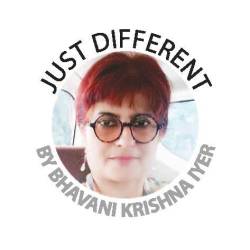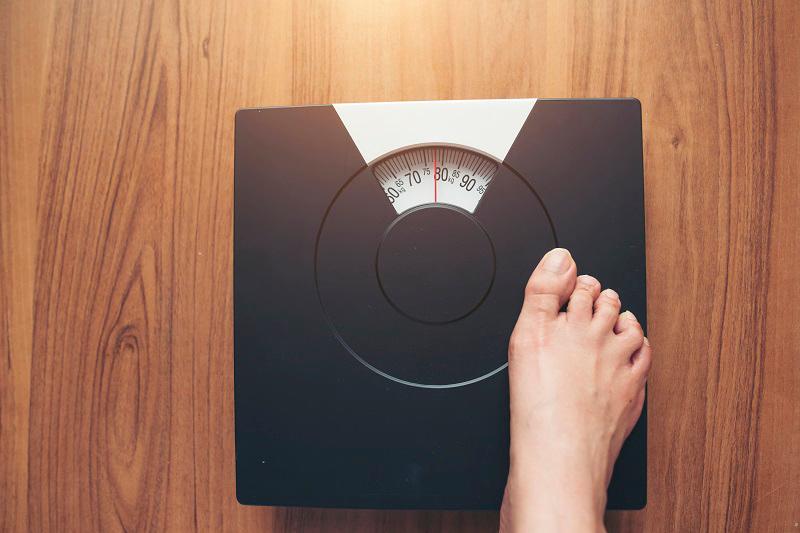I RECENTLY watched a TikTok video excerpted from a live show in India, a platform that often lays bare life’s realities, sometimes so abridged they are bewitchingly bitter.
In this episode, the host’s body-shaming comments towards a supporting actress stirred a storm of emotions. As the actress left the stage, she delivered a powerful speech that moved the audience and viewers to tears.
She highlighted the intricate and often tumultuous journey women face in mid-life, battling the relentless demands and expectations from family, friends and colleagues.
This mid-life weight crisis is not unique to women but they experience it more acutely, especially after pregnancies. The journey through peri-menopause, menopause and post-menopause adds layers of complexity as each woman’s experience is distinctly her own.
Weight gain during these phases is a phenomenon that defies simple explanations. Older women find it harder to shed pounds due to a cocktail of physiological and lifestyle factors.
Firstly, there is the decreased metabolism. As we age, our metabolic rate slows down, meaning the body burns fewer calories at rest, making weight loss a daunting challenge.
Coupled with this is the loss of muscle mass, a natural decline known as sarcopenia. Since muscle burns more calories than fat, losing muscle mass further slows down metabolism.
Then, there is the hormonal upheaval during menopause, marked by a significant drop in oestrogen levels, which can lead to weight gain, especially around the abdomen, complicating weight loss efforts even further.
Changes in energy levels and activity also play a crucial role. Older adults often experience lower energy levels and may be less physically active due to various health issues or mobility limitations. This decline in physical activity is a significant contributor to weight gain.
Health conditions such as hypothyroidism and diabetes, which become more common with age, also promote weight gain.
Furthermore, many medications prescribed to older adults have side effects that include weight gain. Dietary changes, influenced by shifts in taste, medical restrictions and appetite changes, further complicate nutritional intake and weight management.
Addressing these challenges requires a multi-faceted approach such as tweaking diets to lower calorie intake while ensuring nutritional needs are met, boosting physical activity within individual limits and managing underlying health conditions impacting weight.
Women often find losing weight more challenging than men due to biological and hormonal differences.
They naturally have a higher body fat percentage and their bodies are genetically programmed to store more fat for reproductive purposes.
The observation that Indian women often appear more heavily set compared with their Chinese and Malay counterparts is influenced by genetic, dietary and lifestyle factors.
Genetic predispositions affect body type and fat distribution. Dietary habits, high in carbohydrates and fats, common in some Indian diets, contribute to higher body fat percentages. Cultural norms and values related to body image and dietary practices also play significant roles.
Celebrities, with their access to personal trainers, nutritionists and sometimes surgical interventions, live under immense pressure to maintain a certain image, often motivating them to lose weight quickly. Such opulence may not be available to the average women, and women without the means turn to other longer routes for recourse.
Withing these, the societal pressure to conform to a certain body weight can lead to frustration, demoralisation and low self-esteem, exacerbating mental health issues such as depression and anxiety.
It is crucial for social conversations and media portrayals to evolve towards a more inclusive and realistic representation of women’s bodies, reducing these pressures.
Addressing weight and health issues effectively requires understanding that not all weight challenges are linked directly to eating habits or lifestyle choices.
I know of a friend who eats miserly portions and yet is unable to lose even an inch and has been on the heavy side most parts of her adult life.
Fostering body positivity and embracing diverse body types can help diminish the stigma associated with being overweight or obese.
Encouraging healthy behaviours for their own sake, rather than solely for weight loss, emphasises overall well-being over numbers on a scale. Language plays a pivotal role in shaping perceptions and interactions.
Using derogatory terms or making unsolicited comments about someone’s body can perpetuate feelings of inadequacy and shame. Promoting respectful and supportive interactions that focus on the person, not their appearance, is vital.
Increasing awareness about the medical and genetic factors influencing obesity can help reduce stigma. Educational programmes that provide comprehensive information on the complexities of weight, including metabolism, genetics and health conditions, can foster a more understanding and supportive community.
This shift in perspective, from seeing weight loss as a mere equation of eating less and exercising more, to recognising the broader spectrum of influencing factors, supports individuals in managing their weight effectively, and nurtures a culture of empathy and respect.
Comments: letters@thesundaily.com










